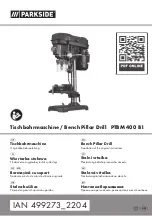
-5-
When batteries are not in
tool or charger, keep them
away from metal objects.
For example, to
protect terminals from shorting
DO NOT
place batteries in a tool box or pocket with
nails, screws, keys, etc. Fire or injury may
result.
To prevent fire or injury
when batteries are not in
tool or charger, always place protective
cap onto end of battery pack.
Protective
cap, guards against terminal shorting.
DO NOT PUT BATTERIES INTO FIRE OR
EXPOSE TO HIGH HEAT.
They may
explode.
Do not attempt to disas-
semble the battery or
remove any component projecting from
the battery terminals.
Fire or injury may
result. Prior to disposal, protect exposed
terminals with heavy insulating tape to
prevent shorting.
NICKEL-CADMIUM BATTERIES
If equipped with a nickel-cadmium battery,
the battery must be collected, recycled or
disposed of in an environmentally sound
manner.
“The EPA certified RBRC
Battery Recycling Seal on the
nickel-cadmium (Ni-Cd)
battery indicates Robert
Bosch Tool Corporation is
voluntarily participating in an
industry program to collect and recycle
these batteries at the end of their useful life,
when taken out of service in the United
States or Canada. The RBRC program
provides a convenient alterative to placing
used Ni-Cd batteries into the trash or the
municipal waste stream, which may be
illegal in your area.
Please call 1-800-8-BATTERY for information
on Ni-Cd battery recycling and disposal
bans/restrictions in your area, or return your
batteries to a Skil/Bosch/Dremel Service
Center for recycling. Robert Bosch Tool
Corporation’s involvement in this program is
part of our commitment to preserving our
environment and conserving our natural
resources.”
NICKEL-METAL HYDRIDE BATTERIES
If equipped with a nickel-metal hydride
battery, the battery can be disposed of in a
municipal solid waste stream.
!
WARNING
!
WARNING
Battery Care
Battery Disposal
!
WARNING
BM 2610914845 3/03 3/18/03 10:56 AM Page 5






































